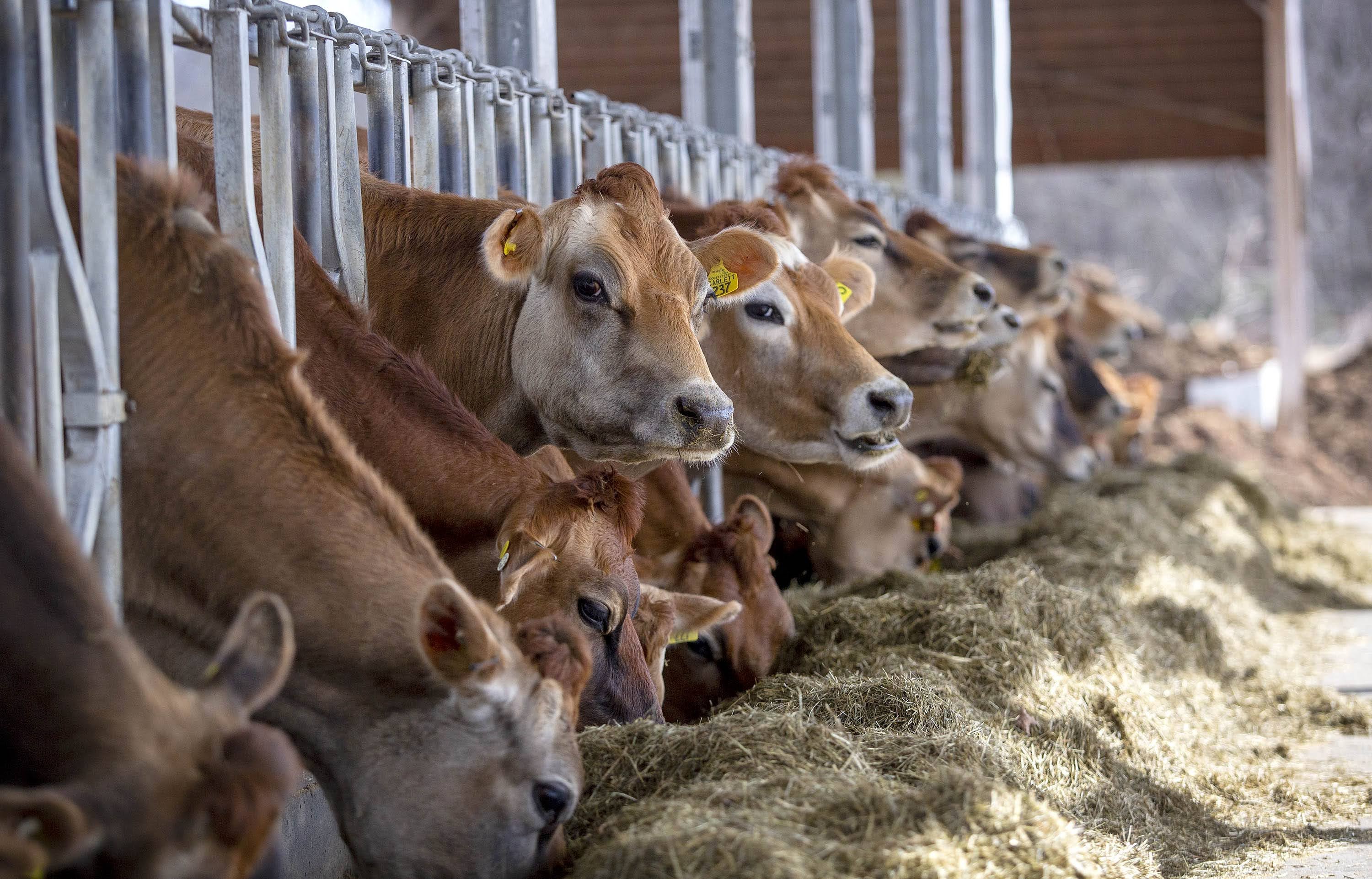Plant-Based Meat

Cows lined up for feeding (Robin Lubbock/WBUR)
There are plenty of reports that extol the virtue of replacing beef farming with meat products that are derived from the various proteins found in plants, e.g., the Impossible Burger and Beyond Meat.
Meat and dairy rely on huge quantities of feed crops and occupy nearly 80 percent of global farmland—accounting for between 14 percent and 30 percent of global greenhouse gas (GHG) emissions.
Here’s an article, however, that counters this narrative. Its main point is that most studies are based on a narrow assessment of which products can deliver the most protein for the least CO2, which doesn’t tell the whole story. The author points out that plant-based meat products “source their ingredients from chemical-intensive (and therefore fossil fuel-intensive) monocultures and rely on heavy processing—all of which has major impacts on human health, biodiversity, and climate change.”
I look at this through the lens I normally use on reviewing all aspects of technology, from renewable energy to EVs to energy storage solutions, i.e., technology is constantly improving. The amount of acreage, water and food per cow is never going to change. By contrast, the set of ingredients that go into a plant-based hamburger changes constantly, all for the better. For instance, the component of our energy that comes from fossil fuels is falling with each passing year.
This is same line or argumentation I use to conclude that “advanced rail energy storage” will not succeed. You want to use off-peak energy to push a train car up a track, and then recover (some of) that energy when it’s needed, by allowing the car to come downhill. Fine. You’re using technology that is part Newton (1660s) and part Faraday (1830s). It will never improve, because it can’t, due to the laws of physics. And you’re competing against batteries, that are getting cheaper, smaller, lighter, and more energy- and power-dense each year.
I have every confidence that plant-based meat actually is the “win-win-win” that it’s represented to be – better for the consumer, the cow, and the planet.
